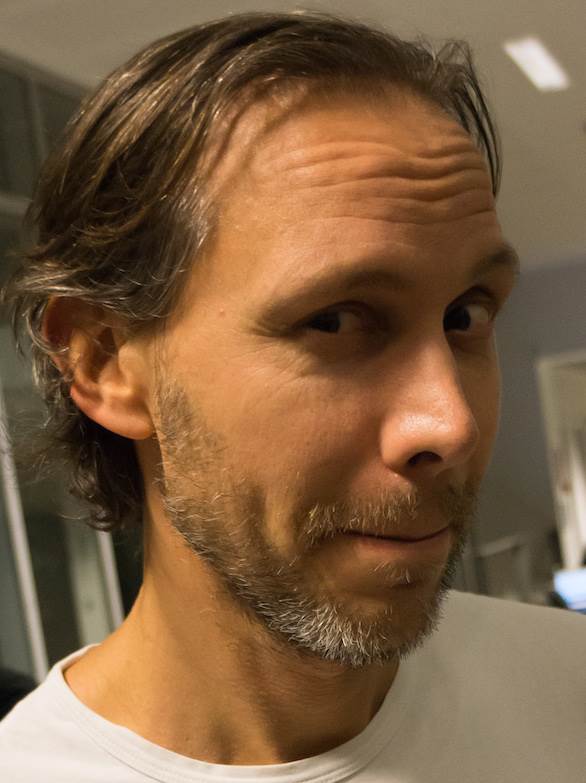The future of wearable tech: Angels and devils communicating directly with your brain?
In the future, our digital devices may be able talk directly to our brains without us noticing it, says Thomas Pederson, Associate Professor at ITU. At OpenITU on March 18, he will give a talk about the prospects of wearable technology.
Eventswearables
Written 11 March, 2016 08:20 by Vibeke Arildsen
On Friday, March 18, the IT University of Copenhagen invites all techies to join an OpenITU event on the increasingly blurred lines between humans and technology.
To give you a sneak peek, we asked one of the afternoon’s speakers, Thomas Pederson, Associate Professor at ITU, to reveal a few spoilers about his talk on the future of wearable technology.
What is your talk going to be about?
 Thomas Pederson, Associate Professor and manager of the Pervasive Interaction Technology Lab at the IT University of Copenhagen.I will talk about how wearable technology is developing and the possibilities connected with these new technologies. Computers are becoming wearable, sensors are becoming better, and technology is becoming mobile. Today, many of the apps we run on our devices are for personal use - we like to measure ourselves to get motivation for exercising more. Basically, we have already started using wearable technology to influence our behavior, and this is trend is probably going to become bigger and bigger.
Thomas Pederson, Associate Professor and manager of the Pervasive Interaction Technology Lab at the IT University of Copenhagen.I will talk about how wearable technology is developing and the possibilities connected with these new technologies. Computers are becoming wearable, sensors are becoming better, and technology is becoming mobile. Today, many of the apps we run on our devices are for personal use - we like to measure ourselves to get motivation for exercising more. Basically, we have already started using wearable technology to influence our behavior, and this is trend is probably going to become bigger and bigger.
How is wearable tech developing at the moment?
The systems are becoming context-aware – they are learning more and more about what we are doing, who we are communicating with, and what we will do next. Eventually they will be able to adapt so they do not disturb us when we are busy or interrupt us in a good way when we need it.
The more sensors we put on our bodies, the better they will become at knowing what we are focusing on. There is a possibility that we will be able to design systems that are not only context-aware, but also work tightly together with our attention system. In 10-15 years, we might be able to design wearables that direct our attention to particular things around us and influence our behavior without notifying our conscious minds.
What could this technology be used for?
I can imagine that we will be able to produce systems that will be able to direct our attention in everyday life. For instance, we might design glasses or ‘contact lenses’ that merge digital information with real world information. There are a lot of limitations with this technology today, but I don’t see any reason why those can’t be solved.
Is this a good or a bad thing?
There is a huge economic incentive to design these systems and there is a possibility that we will have the technical capability to develop them. So I think it’s worth discussing the ethical implications already now.
Thomas Pederson, Associate Professor at ITU
The good thing would be that the systems could help us achieve what we would like to achieve, sort of like silent ‘angels’. For instance, we could tell them to make us do more reading over the weekend. The system would then provide subliminal cues that makes it more likely that you pick up that book by creating stimuli to affect where you are putting your attention.
Obviously, this technology also presents dangers. Such personal guiding systems could potentially be hacked, or advertisers might use them to influence us to buy their products – they might become ‘devils’ that make us do bad things against ourselves and other people, without being aware of it.
There is a huge economic incentive to design these systems and there is a possibility that we will have the technical capability to develop them. So I think it’s worth discussing the ethical implications already now.
OpenITU: The Good, the Bad and the Robots
- Friday, March 18 from 16-17.30 in DesignLab at ITU.
- Read more about the event here and sign up on Facebook.
- The event is hosted by DR P1 Harddisken host Anders Høeg Nissen.
In addition to Thomas Pederson, the speakers of the afternoon are:
- Gunhild Borggren, Associate Professor and co-founder and manager of the ROCA (Robot Culture and Aesthetics) research network at University of Copenhagen.
- Ken Rinaldo, contemporary artist and Professor at the College of Arts & Sciences, The Ohio State University.
OpenITU is a series of free and public debates on some of the most urgent issues facing IT professionals and society at large.